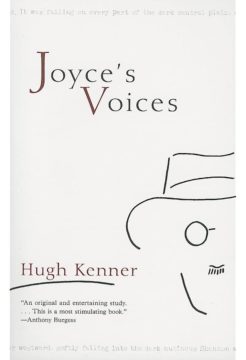Walter Benn Michaels at nonsite:
 Borges famously singles out for praise Menard’s description of “truth’ whose mother is history, rival of time, depository of deeds, witness of the past …” (CF, 94). A rejected draft might have said something like this: “truth, whose father is history,” “preserver of time ….” Then “father” and “preserver” crossed out and replaced with “mother” and “rival,” the point of the revision being to express Menard’s thought better and also to make sure the text in which he expressed it coincided (“word for word and line for line”) with what Cervantes had written. Of course, it’s hardly likely that in expressing his own thoughts he would find himself doing so in Cervantes’s words, but that’s the problem that infinite time (like the monkeys and the typewriters or being “immortal” [CF, 91]) is supposed to solve. However, the idea that he could, in revising, check to see how he was doing is a deeper problem. You wouldn’t know that truth whose father is history was wrong unless you checked, but if you checked and then corrected, you’d be copying. So, you could never check. But if you didn’t know what the original said, how could you understand yourself to be trying to reproduce it? The difficulty of Menard’s project, in other words, is not exactly how hard it is to succeed in producing even a few sentences that coincide with rather than copy Cervantes but how hard it is even to try, how hard it is even to know what trying is.
Borges famously singles out for praise Menard’s description of “truth’ whose mother is history, rival of time, depository of deeds, witness of the past …” (CF, 94). A rejected draft might have said something like this: “truth, whose father is history,” “preserver of time ….” Then “father” and “preserver” crossed out and replaced with “mother” and “rival,” the point of the revision being to express Menard’s thought better and also to make sure the text in which he expressed it coincided (“word for word and line for line”) with what Cervantes had written. Of course, it’s hardly likely that in expressing his own thoughts he would find himself doing so in Cervantes’s words, but that’s the problem that infinite time (like the monkeys and the typewriters or being “immortal” [CF, 91]) is supposed to solve. However, the idea that he could, in revising, check to see how he was doing is a deeper problem. You wouldn’t know that truth whose father is history was wrong unless you checked, but if you checked and then corrected, you’d be copying. So, you could never check. But if you didn’t know what the original said, how could you understand yourself to be trying to reproduce it? The difficulty of Menard’s project, in other words, is not exactly how hard it is to succeed in producing even a few sentences that coincide with rather than copy Cervantes but how hard it is even to try, how hard it is even to know what trying is.
more here.
